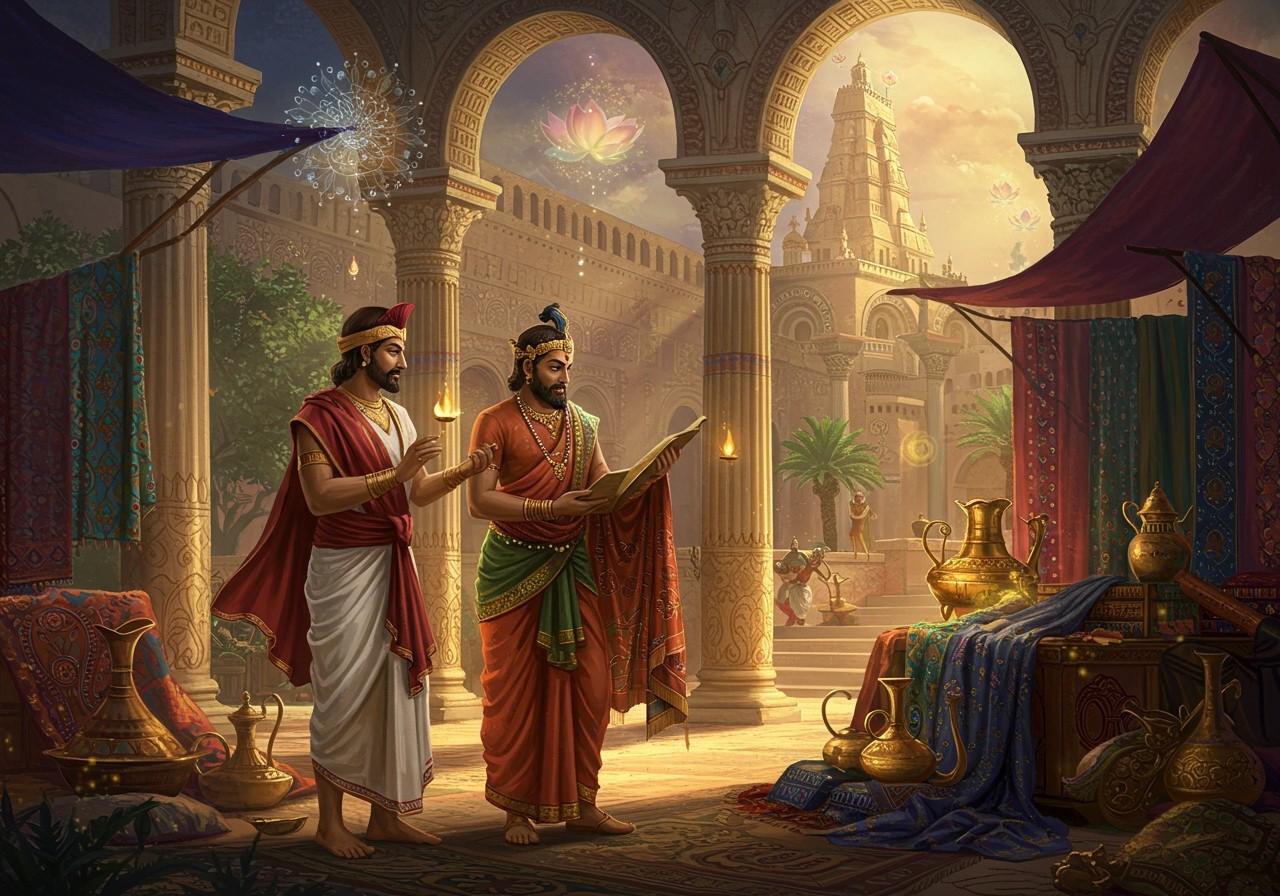
The term “Yavana” holds a significant place in Indian history and culture. Delving into its various meanings and interpretations across different regions and time periods allows us to grasp its importance. Understanding the origins and evolution of this term provides insights into ancient India’s interactions with foreign cultures.
Historical Origins of Yavanas
The term “Yavana,” originating from Achaemenian (Persian) inscriptions referring to Ionian Greeks, was adopted by Indians in the northwestern provinces. Initially, it denoted the Ionian Greeks who arrived in India during Alexander the Great’s campaigns around the 4th century BCE (a date also suggested by search results). Over time, “Yavana” broadened to encompass various foreign groups, including the Indo-Greeks, and eventually, any foreigner in Indian texts. The Yavana Era, commencing around 174 BCE, served chronological purposes in the Indian subcontinent, further solidifying the term’s historical presence.
- Mahabharata and Puranas: These classic Sanskrit texts frequently mention Yavanas, often portraying them as warriors from distant lands. The Mahabharata, for instance, describes Yavana military formations and weaponry, illustrating their perceived military prowess.
- Maurya and Gupta Periods: Yavanas participated in the political and military landscape during these eras. For example, search results suggest the Indo-Greek Kingdom, also known as the Yavana Kingdom, existed across parts of modern-day Afghanistan, Pakistan, and northwestern India, demonstrating their significant regional influence.
Yavanas in Different Indian Languages
The meaning of “Yavana” has nuances across various Indian languages, reflecting regional historical interactions:
- Hindi: “Yavana” typically refers to ancient Greeks or foreigners in historical accounts. Hindi literature often uses the term when discussing ancient invasions and trade relations.
- Bengali: Similar to Hindi, Bengali texts employ “Yavana” with historical connotations, but with added regional interpretations. Bengali literature sometimes connects “Yavana” with specific historical events or figures relevant to the region.
- Tamil: During the Sangam period, Tamil literature used “Yavana” to denote western foreigners and traders. Ancient Tamil inscriptions document interactions and trade with Yavanas, highlighting their presence in the region’s maritime history.
Cultural and Religious Significance
“Yavana” carries cultural and religious implications:
- Hinduism: Hindu scriptures sometimes depict Yavanas as mlechchhas (those outside the Vedic fold). This portrayal reflects the complex cultural and religious dynamics of ancient India. However, it’s crucial to note that not all interactions were adversarial, and some texts also acknowledge cultural exchange.
- Buddhism: Buddhist texts record interactions with Greek Bactrian kings who converted to Buddhism, like Menander I. These rulers played a role in disseminating Buddhism within regions influenced by Greek culture, showcasing a fascinating intersection of religious and cultural transmission.
Yavana influence is evident in Indian art and architecture, particularly in Greco-Buddhist sculptures and coinage. These artifacts provide tangible evidence of cultural fusion and exchange.
Modern Interpretations and Misconceptions
Contemporary discussions sometimes misinterpret “Yavana”:
- Common Misconceptions: A common misconception limits “Yavana” solely to Greeks. However, as highlighted, the term’s meaning expanded over time to include various foreign groups, as supported by search results.
- Modern Usage: “Yavana” has evolved in modern Indian languages and popular culture. Its meaning can vary depending on context, and it’s essential to consider the specific usage to avoid misinterpretations.
Modern media portrayals shape public perception of Yavanas, influencing how the term is understood today.
Connecting with Sacred Traditions through Poojn.in
At Poojn.in, we recognize the significance of authentic ritual items for spiritual practices. As you explore the meaning of “Yavana” and related traditions, we offer products to support your journey:
Arjun Bark (Terminalia Arjuna): Available in regional variations:
- Pure Arjuna bark (Hindi: अर्जुन छाल)
- Arjuna Ela (Tamil)
- Arjuna Kottai (Malayalam)
- Arjunaru (Kannada)
- Nirmarjuna (Telugu)
These sourced barks are essential for various rituals. Each product includes quality certification, proper packaging, usage instructions in multiple languages, and direct delivery. Explore our collection at Poojn.in.
Our customer service can assist you in selecting appropriate products for your regional preferences. Find more ritual items here.
Conclusion
Understanding “Yavana” offers a glimpse into India’s rich history and culture. From its Ionian Greek origins to its diverse meanings across languages and its cultural and religious significance, “Yavana” reflects the interactions that have shaped India. While modern interpretations and misconceptions exist, appreciating the historical context allows us to recognize the lasting impact of these ancient connections, honoring our heritage and appreciating the cultural exchanges that continue to influence us. Learn more about Hinduism’s history.
FAQs about Yavanas
What is the meaning of Yavanas? “Yavana” refers to ancient Greeks or foreigners in classical Indian texts.
What is the meaning of Yavanas in Hindi? In Hindi, it’s ‘यवन,’ denoting Greeks or foreigners in ancient texts.
What is the meaning of Yavanas in English? Generally, it means Greeks, representing foreigners in ancient Indian history.
What is the meaning of Yavanas in Bengali? It’s written as ‘যবন,’ meaning Greeks or foreigners.
What is the meaning of Yavanas in Tamil? ‘யவன’ refers to Greeks or foreign people.
Why were the Greeks called Yavanas in ancient Indian texts? Due to the influence of the Ionian Greeks, among the first to interact with India.
Are Yavanas mentioned in religious texts? Yes, in various ancient Indian religious texts, including the Mahabharata and Puranas. Explore the Ramayana here.


